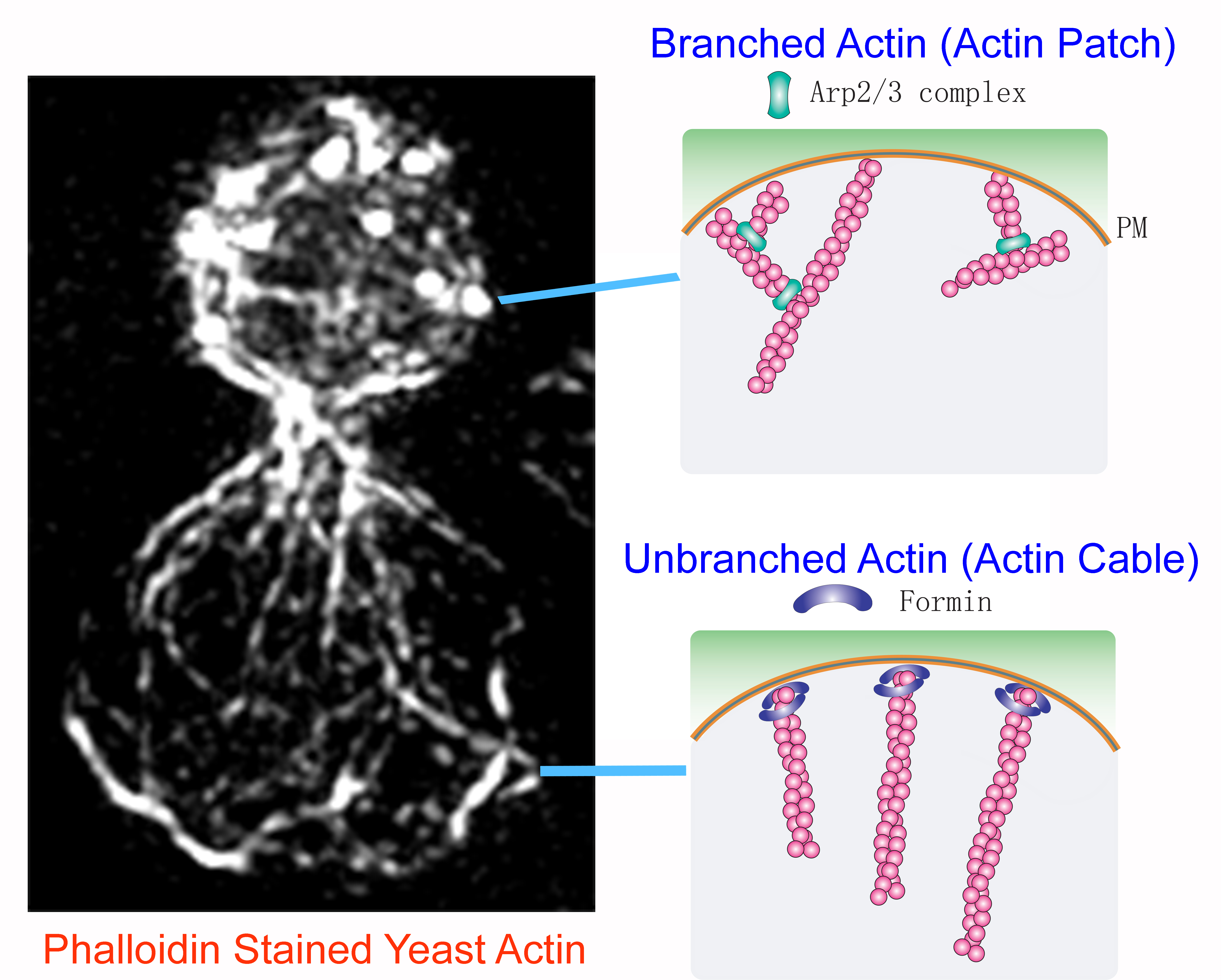Molecular Condensation for Cell Signaling in Space and Time
The spatiotemporal regulation of cellular signaling through molecular condensation is an exciting and rapidly emerging field of research. While past studies have laid a solid foundation in understanding signaling transduction—uncovering key components and hierarchical networks—there remains a critical gap in knowledge about how functional assemblies with specific material properties control biochemical reactions during signaling processes. At our laboratory, we tackle these challenges by integrating interdisciplinary approaches to study condensation-mediated cytoskeleton remodeling and signal transduction across several biological systems in fungi and plants.
1. Molecular Condensation Regulates Actin Remodeling in Fungi (Growth & Host Infection)
We explore how macromolecular condensation regulates actin remodeling in diverse cellular conditions. Our work also investigates the assembly of polarisome complexes, which drive polarized fungal growth and facilitate host infection.
2. Nanoscale Condensation as Signaling Hubs, 2.5D or 3D (e.g. Nanodomain)
We study the formation of nanodomains in plants, driven by lipid bilayer and associated signaling proteins, at plant-microbe interfaces. Our research focuses on how protein and lipid phase separation act as immune signaling hubs on the plasma membrane, triggered by pathogen recognition. Additionally, we are developing machine learning algorithms to predict and design molecular condensates, translating fundamental insights into innovative agri-technologies for sustainable agriculture.
3. Machine Learning, Systems Biology, and Synthetic Engineering of Functional Condensates
We are currently applying machine learning and systems biology approaches to predict homotypic and heterotypic biomolecular condensates across species, uncovering the evolutionary patterns of functional condensates. Integrating biophysical principles and multi-omics data, we hope to decode the grammar of functional condensates in medicine and agriculture. Our overarching goal is to bridge fundamental principles with direct application in synthetic engineering via “designer condensates”. Plant immunity is our major focus. We translate the condensation principle into proteins engineered to produce functional assemblies that enhance immune signaling and pathogen defense.



